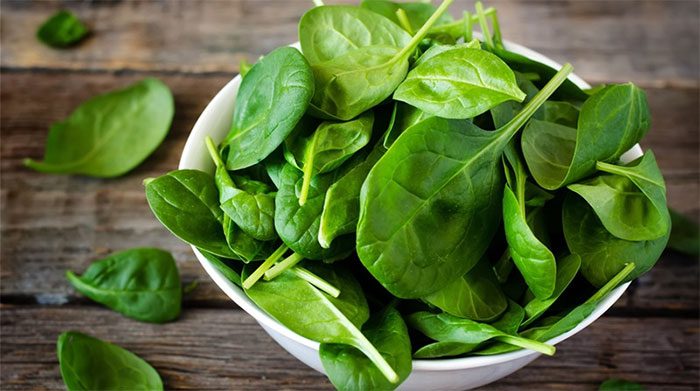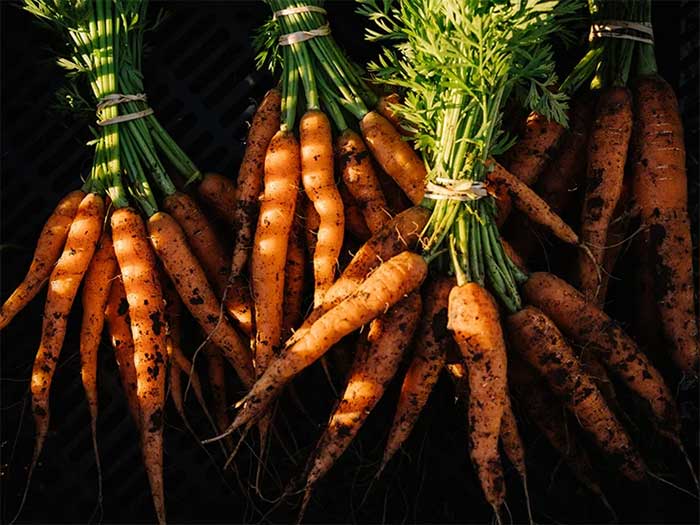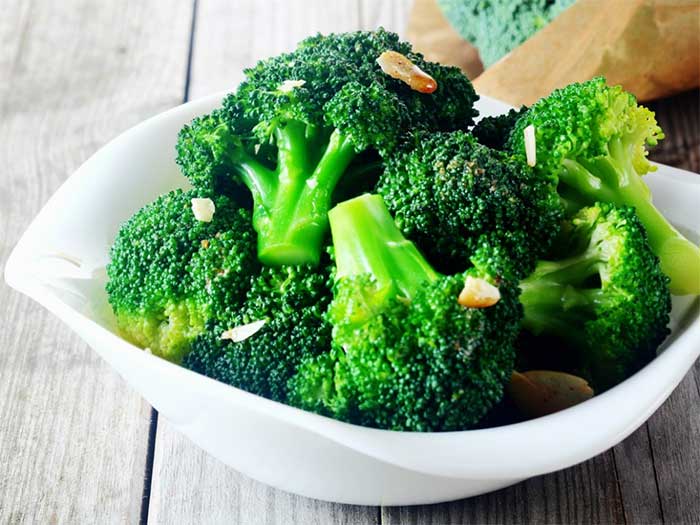Not consuming enough vegetables while eating too much meat and processed foods is a common nutritional issue among modern youth. Vegetables not only create a balanced diet and aid digestion but also help protect and improve health.
Here are three types of vegetables that, despite being familiar, not everyone knows are beneficial for the eyes, liver health, and stomach disease prevention:
1. Spinach
Spinach, also known as leafy greens or spinach leaves, is a highly nutritious green vegetable that is good for health.

Spinach is rich in fiber, vitamins A, C, folate, iron, and calcium.
The high content of glutathione in spinach is considered beneficial in promoting liver detoxifying enzyme activity. The chlorophyll in this vegetable helps neutralize heavy metals and cleanse the liver. Vitamins A, C, K, along with other antioxidants, contribute to fighting harmful free radicals and promoting healing in liver damage cases.
For the stomach, spinach is rich in fiber, vitamins A, C, folate, iron, and calcium. For those suffering from gastroesophageal reflux disease, consuming spinach can help protect the stomach lining, reduce the risk of gastric ulcers, and improve digestive function.
However, what surprises many is that spinach is also good for the eyes. According to results from several studies, including research at the University of Cambridge (UK), spinach is a source of beta-carotene, lutein, and zeaxanthin. These compounds are beneficial for eye health, helping prevent vitamin A deficiency, eye itching, corneal ulcers, and dry eyes.
2. Carrots
When it comes to vegetables that are good for the eyes, many people think of carrots first. Carrots are a food rich in sugars, vitamins, and minerals, especially vitamin C and carotene, which are precursors to vitamin A. When ingested, they convert to vitamin A, which benefits the retina and enhances vision.
However, consuming too many carrots can lead to jaundice and yellowing of the eyes. It is recommended to eat or drink carrot juice 2-3 times a week. Adults should consume about 100g of carrots at a time, while children should eat about 30-50g.
In addition to their nutritional value, carrots contain iron and vitamin A, which help prevent and treat anemia. This significantly impacts the functioning of the eyes and many other organs.

Carrots are essential when discussing foods that are good for the eyes. (Illustrative image).
Carrots are also very beneficial for the stomach. In fact, this vegetable is considered one of the best natural foods for treating stomach pain. This is because carrots contain high levels of vitamin A, which helps enhance intestinal and stomach function and boosts immunity.
Research has shown that carrots help repair the stomach lining affected by excess acid. Whether consumed as juice, pureed smoothies, or in salads, this wonderful food can help control uncomfortable symptoms such as burning sensations and acid reflux, and reduce diarrhea.
For liver health, carrots are rich in flavonoids, beta-carotene, and glutathione. These compounds support the liver’s detoxification process and enhance liver function.
3. Broccoli
Broccoli contains a chemical called sulforaphane, which has antibacterial properties. It also contains antioxidants, which may help protect against cancer. For this reason, eating broccoli sprouts can help reduce or prevent gastritis and lower the risk of stomach cancer. Moreover, broccoli is very high in fiber, which naturally supports better digestion.
According to research from Johns Hopkins Hospital in the USA, broccoli can support liver health with natural compounds such as diindolylmethane and glucoraphanin. These compounds have cancer-fighting properties and support the liver’s natural detoxification process, improving liver function and reducing fatty liver. They are not only found in broccoli but also in many other cruciferous vegetables, albeit in lower amounts.

Broccoli is always considered one of the healthiest vegetables. (Illustrative image).
This vegetable is also excellent for eye health due to its high levels of carotenoids, lutein, and zeaxanthin. The beta-carotene in broccoli is extremely beneficial for the eyes as it helps combat age-related macular degeneration and prevents cataracts. It is also rich in vitamin C and vitamin A, which are crucial nutrients for maintaining and improving vision, reducing eye strain, and preventing dry eyes.


















































